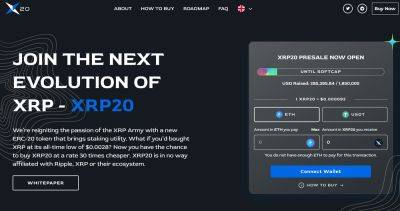Connext, Alchemix launch cross-chain token standard to reduce bridge exploit losses
The Connext cross-chain bridging protocol has announced a new token standard to reduce losses from bridge hacks. According to a July 24 announcement, the new “xERC-20” standard allows token issuers to maintain a list of official bridges and control how many tokens can be minted by each.
In addition to Connext, decentralized finance (DeFi) platform Alchemix Finance will implement xERC-20 tokens, the announcement stated.
Connext AlchemixToday, Connext is announcing support of the xERC20 standard and onboarding projects into safely bringing their tokens to every chain.As our flagship user, we've been working with @AlchemixFi to bring $alUSD, $alETH, and $ALCX to @arbitrum and @optimismFND. https://t.co/S2tBLpuuqe
The new token standard was originally put forth on July 7 as Ethereum Improvement Proposal (EIP) 7281. It was co-authored by Connext’s founder Arjun Bhuptani. At the time, Bhuptani said it would help to minimize losses from bridge hacks by acting on the principle that “Token issuers are the ones who get rekt when bridges get hacked.”
Instead of each bridge issuing its own version of a token on every network, the new standard would allow bridges to mint “official” or “canonical” versions of each token. However, they can only do this with the permission of the token issuer, and this permission would be enforced through smart contracts. Token issuers would also be able to limit the number of coins that a particular bridge could mint, the proposal stated.
Under EIP-7281, bridges could still mint their own versions of tokens, but such derivative coins would not be considered “canonical” versions. As a result, consumers would eventually come to reject unofficial versions of coins. In Bhuptani’s view, this would lead to a
Read more on cointelegraph.com




















